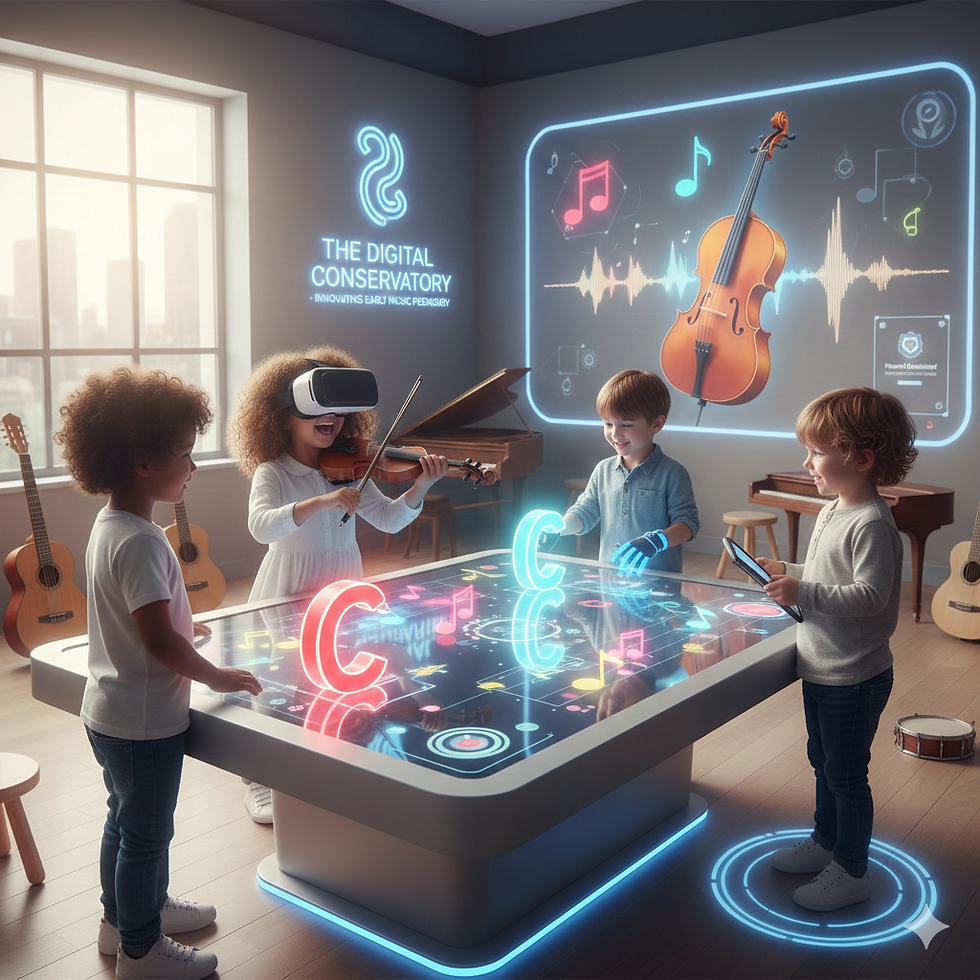"Hit a High Note: Music Lessons for Kids with ADHD"
- Jul 11, 2025
- 3 min read
Updated: Jul 25, 2025
"The ADHD Workbook for Kids: Helping Children Gain Self-Confidence, Social Skills & Self-Control" is an incredible resource for parents and educators. But what if we told you there's another powerful tool that naturally aligns with its goals, especially for young learners? That tool is music!
If you're a music lover or guiding a young musician, you already know the magic of melody and rhythm. Let's dive into how music can uniquely benefit children with ADHD, helping them build the very skills highlighted in that valuable workbook.

Music: More Than Just Notes and Rhythms
For children with ADHD, the world can often feel like a symphony of distractions. Focus can be fleeting, impulses hard to control, and social cues sometimes missed. This is where music steps in, offering a structured, engaging, and often joyful pathway to development.
Here’s how engaging with music, whether through listening or active learning, can be a game-changer:
1. Boosting Self-Confidence: The Sweet Sound of Achievement
Learning an instrument, singing in a choir, or even just keeping a steady beat can provide tangible achievements. Every new chord, every mastered song, every performance (big or small) is a win that builds self-esteem. For a child who might struggle in traditional academic settings, this sense of accomplishment is incredibly powerful. Music also offers a safe and non-judgmental space for self-expression, fostering a sense of individuality and self-worth.
2. Enhancing Social Skills: Harmonizing Together
Joining a band, orchestra, or choir is a masterclass in social interaction. It requires listening to others, taking turns, collaborating, and understanding one's role within a group. These experiences naturally develop teamwork, communication, and empathy. Music also allows for communication beyond words, helping children respond to cues and adapt their playing to match others, building essential non-verbal social skills. Making music with others creates strong bonds and a sense of belonging, which can be particularly beneficial for children who find social interactions challenging.
3. Cultivating Self-Control: Finding the Inner Rhythm
Music is inherently structured. Following a beat, maintaining tempo, and understanding musical phrasing all require focus and impulse control. This consistent practice helps to regulate the brain's activity, encouraging a more calm and focused state. Playing an instrument demands sustained attention to multiple elements simultaneously – reading notes, coordinating movements, listening to pitch, and keeping time. This multi-faceted engagement strengthens neural connections in the brain related to attention and focus. Finally, music provides an outlet for processing and expressing emotions.
Calming melodies can soothe anxiety, while energetic rhythms can help channel excess energy productively, helping children learn to manage their feelings and reduce impulsive behaviors. Learning music takes time and practice, fostering patience and perseverance – critical life skills that extend far beyond the music room.
Tips for Music Learners and Their Families:
Find the Right Fit: Encourage your child to explore different instruments or vocal styles. Motivation is key, so let them choose what excites them!
Seek Understanding Teachers: Look for music teachers experienced with neurodiverse learners who can adapt their teaching methods. Short, engaging segments and hands-on activities can be particularly effective.
Integrate Music into Daily Routines: Use music to signal transitions (e.g., a "clean-up song"), create calming environments, or energize before tasks.
Embrace the Process: Remember, music isn't a cure, but a powerful tool. Celebrate small victories, encourage exploration, and let music be a source of joy and growth, not just another task.
Just like the exercises in "The ADHD Workbook for Kids" help children build vital skills, music offers a vibrant and engaging pathway to self-confidence, social connection, and self-control. So, if you're looking for another enriching way to support a child with ADHD, consider turning up the volume on their musical journey!



Comments